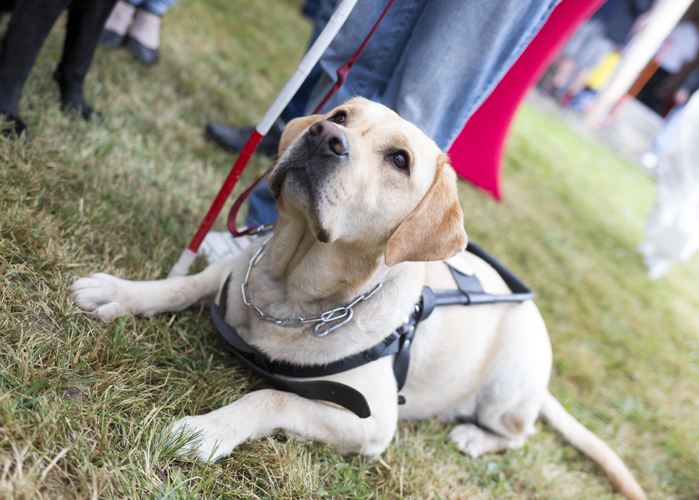Disabled people say inclusion in sport has a major impact on their wellbeing

Authored by RSA
A survey of 1,000 disabled adults who regularly take part in sport has found that it has played a major part in improving their mental health (48%), building confidence (47%) and making friends (41%). MORE THAN insurance and its charity partner, Dogs for Good, have teamed up to highlight how our canine friends have made participating in sport more accessible for disabled people, bringing significant benefits to their lives.
With the summer of sport truly underway, new research from MORE THAN insurance and its charity partner, Dogs for Good, reveals how inclusivity in sport is playing a crucial role in supporting disabled adults across the UK.
The new survey talked to 1,000 disabled adults who participate in sport, whether it’s watching their favourite team or competing themselves. It highlights how sport helps to combat social isolation, with 86% of those surveyed saying that participating in sport has stopped them from feeling lonely.
One in five (21%) disabled people said they have previously shied away from sport because it wasn’t accessible to them, with a similar proportion (20%) having felt marginalised until they took up a physical activity. According to MORE THAN’s research, almost three quarters (72%) of those surveyed say there were times when they avoided sport altogether, believing that sport wasn’t accessible to disabled people.
But this all changed when they discovered disability inclusive clubs in their local area – with 90% of those surveyed revealing that participating in sport has changed their lives for the better.
The study also highlights the importance of inclusion to the vast majority of those surveyed, with over half (54%) also revealing they would be a lot more likely to attend a sporting event which promotes inclusivity at its heart. And of those people surveyed 46% said it was because it demonstrated how sport can be accessible to everyone regardless of whether they’re disabled or not.
More than a third (38%) believe inclusive attitudes at sporting events help challenge societal stereotypes and biases and over three-quarters (78%) of disabled adults also revealed that watching sports has changed their lives for the better.
Ed Bracher, CEO, Dogs for Good said: “At Dogs for Good, we know how important feeling included is to the people that we support. Sport can be a great way for people to have that sense of community, building friendships and enjoying all the mental health benefits that come with it. We know that our dogs are also playing an important role in helping disabled people to access sport – they help increase confidence about attending sporting events as a fan, as well as increasing their feeling of independence and sense of empowerment that makes taking part in sport much more possible.”
“Our work is centred around supporting disabled people with their independence and creating opportunities for them to be involved in their local communities and we know that having a dog by their side has a huge role to play in supporting them to do so.”
The survey also uncovers the power of dogs in enabling sport participation, especially among disabled people. When it comes to attending or playing at sports events, 89% of disabled people who own a dog say that their furry companion has given them the confidence to participate in sports. Dogs can offer opportunities for disabled adults to become more involved in sporting communities: from offering support when attending a match at a local club, to providing the confidence to take part in community sport too.
Furthermore, those surveyed believe that more can be done to make sports more inclusive to the benefit of everyone, with a lack of accessible facilities (45%), lack of trained staff (25%), and lack of information ahead of gatherings (34%) among the biggest reasons that would impact their participation.
Louisa Leonard, Managing Director at MORE THAN, added: “The incredible benefits that dogs bring to our lives never ceases to amaze me. They not only provide unconditional love and companionship, but also play a crucial role in supporting disabled people, helping to make life possible for them. And now we know that they even help to enable participation in sport too – an important part of our culture that everyone should be able to get involved in. This is why we’re incredibly proud to be partnered with Dogs for Good, supporting them with the amazing work they do to help disabled people and their families through the power of dogs and expert advice.”





